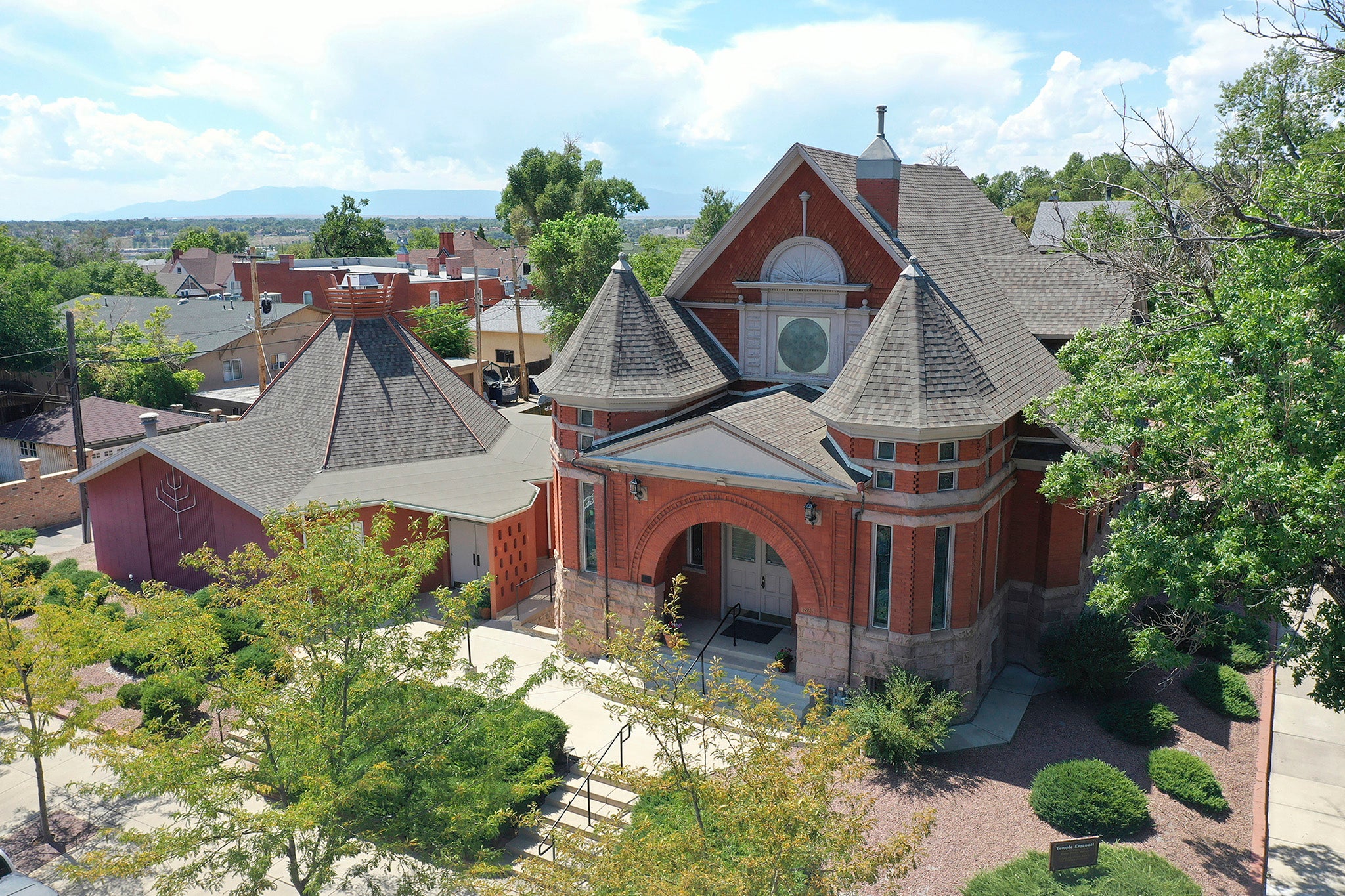White supremacist 'plotting to blow up synagogue' arrested by FBI
Plotter Richard Holzer faces up to 20 years in prison

Federal authorities in Colorado have arrested a man they accused of plotting to blow up a synagogue in Pueblo, a city two hours south of Denver, according to federal court documents.
The man, identified as Richard Holzer, 27, used several Facebook accounts to promote violence and show support for the Holocaust, writing in July in a private message, for example, that he was “getting ready to cap people,” the documents said.
The message included a picture of him aiming a long gun while dressed in clothing displaying white supremacy symbols. He told another Facebook user, “I wish the Holocaust really did happen” and, speaking of Jews, “they need to die.”
Mr Holzer was arrested on Friday after he was first contacted by an undercover FBI agent in September. It is not clear when investigators began tracking him or how they were first alerted to his posts. Speaking over Facebook Messenger shortly after contact was made, he told the agent he was formerly a member of the KKK and now identified as a skinhead.
If convicted of attempting to obstruct religious exercise by force using explosives and fire, Mr Holzer faces up to 20 years in prison.
The arrest comes a year after a shooting at a temple in Pittsburgh left 11 people dead, prompting synagogues across the nation to heighten security and issue safety warnings ahead of services.
In an interview, the Pueblo synagogue’s rabbi, Birdie Becker, said authorities informed the synagogue of a plot only after the arrest. The synagogue, called Temple Emanuel, is more than 100 years old and has a congregation of 35 families, some of whom are the children of Holocaust survivors. Ms Becker said that the Pittsburgh attack last year had rattled her congregation, but that she had not expected a community “in the middle of nowhere Colorado” to be a target.
“But,” she said, “that’s our new reality — it’s that anybody can be a target.”
In October, according to the court filing, Mr Holzer told the undercover FBI agent that he was going to scope the synagogue and sent the agent a video from outside. He then told the agent his plan was to poison members of the synagogue on 31 October, possibly with arsenic. He invited the agent to join him.
Later, Mr Holzer and a friend identified in the documents as Skeeter met with three undercover FBI agents, with whom he began to discuss alternate plots, including a plan to build Molotov cocktails and weld the temple doors shut. Mr Holzer stated that he wanted to “vandalise the place beyond repair,” the documents said. He then visited the synagogue with the agents, where Mr Holzer assessed that the Molotov cocktails would not be enough.
The agents “offered to supply” pipe bombs, according to the documents. Several days later, Mr Holzer met the agents to pick up the bombs, which were inert, according to officials. Authorities arrested him shortly after, and he admitted that he had been planning to blow up a synagogue in the middle of that night.

Officials said he referred to the plan as “my mountain” and to Jews and the synagogue as a “cancer” to the community.
Mr Holzer’s arrest marks the 13th time since the Pittsburgh attack that authorities have apprehended someone for allegedly plotting attacks or making threats against a Jewish community, according to a report from the Anti-Defamation League.
The organisation had been tracking Mr Holzer’s online activity since May 2016, according to Scott Levin, its regional director, and had repeatedly shared information with law enforcement, citing a concern that he might pose a threat to public safety.
Temple Emanuel is one of two synagogues in Pueblo, a city of about 112,000 people.
The area is divided politically and the temple is made up of people from across the political spectrum, Ms Becker said. She said the plot was particularly painful because Temple Emanuel had become a place where people with differing political views could talk “without a problem.”
The temple was built in 1900, and some families in the congregation trace their roots in the community back generations. The youngest congregant is a newborn; the oldest is nearly 100. Just two weeks ago, Ms Becker watched as five children, ages 6 to 8, were honored as new temple students, and were given Torah scrolls and chocolate candy during a Sabbath service.
Pueblo has been home to a Jewish community since at least 1870, when the census listed 12 Jewish families, according to the local newspaper. Many of those Jews were Central and Eastern European immigrants.
The temple is one of the oldest in Colorado, and is listed on the National Register of Historic Places.
Ms Becker said services would continue at Temple Emanuel despite the threat. “We’ve been around for 119 years,” she said. “This is a blip. You just move on.”
The New York Times
Join our commenting forum
Join thought-provoking conversations, follow other Independent readers and see their replies
Comments
Bookmark popover
Removed from bookmarks